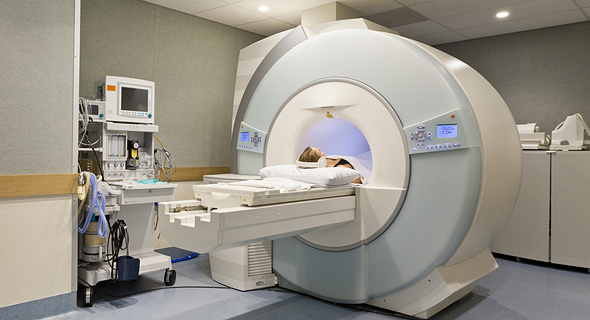
Israeli Hospitals Move to Protect MRI, Insulin Pumps from Cyber Attacks
Tel Aviv Sourasky Medical Center and Rambam Healthcare Campus have contracted cybersecurity company Cynerio Israel Ltd. to deploy its technology in their systems
Yoav Stoler | 16:48, 30.04.18
Two of Israel's general hospitals are extending their security measures to the realm of medical devices. Tel Aviv Sourasky Medical Center and Rambam Healthcare Campus, Israel's third and fifth largest hospitals, respectively, have contracted cybersecurity company Cynerio Israel Ltd. to deploy its technology in their systems, according to a joint statement released Thursday.
For daily updates, subscribe to our newsletter by clicking here.
The collaboration between the hospitals and Cynerio, valued at hundreds of thousands of shekels a year, started in March, and Cynerio's system is currently in the process of being installed on relevant devices. The company's technology combines machine learning with medical workflow analysis to monitor all connections to the device, provide information about medical device network behavior, detect anomalies and stop threats. While Sourasky and Rambam already employ cybersecurity for their networks, the devices used in the hospitals did not have a dedicated defense system until now, according to the statement. In 2017, during the WannaCry worldwide ransomware attack, 16 hospitals and almost 600 general practices were breached in the U.K., their computers locked and their files held for ransom. The attack left the hospitals unable to access digital medical records and impacted the quality of care they could provide patients.Related stories
Medical devices such as MRIs, X-ray machines, and insulin pumps are becoming increasingly smart as technology advances, employing wireless technology and sensors and connecting to smartphones for improved care capabilities. As a result, like all network-linked systems, medical devices can be an object of security breaches, targeted for manipulation themselves or used to infiltrate the better-protected hospital network.
Most of today’s advanced medical devices are not properly protected by traditional cyber security technology, Eyal Kleiner, head of Rambam’s computer and communications security, said in an email sent to Calcalist. The hospital, therefore, searched for a technology that could show a device’s environment and possible threats, and assist in their protection.
No Comments Add Comment